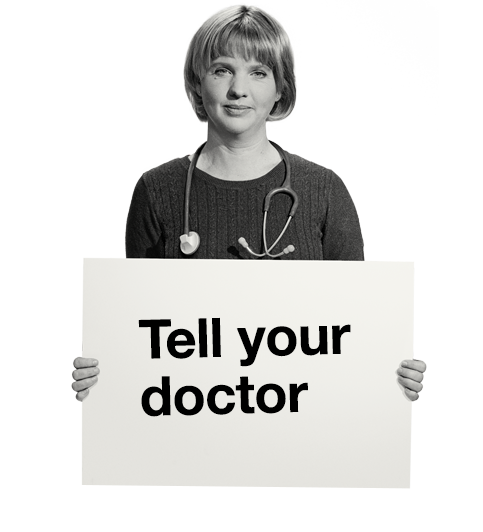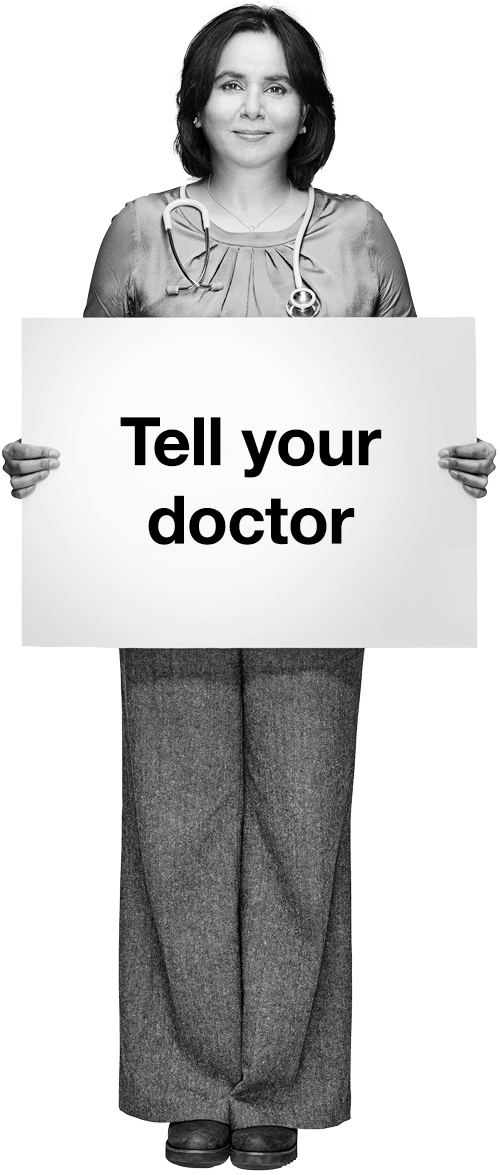If you've noticed changes to your breasts and you're over 70, tell your doctor.
Dr Prue Mitchell
Get this information in other formats

Dr Prue Mitchell
Get this information in other formats

If you've noticed changes to your breasts and you're over 70, tell your doctor. Chances are it's nothing serious, but you're not wasting anyone's time by getting it checked out. Call your GP today.
Some symptoms may be caused by other conditions, such as a cyst or abscess, which may still need treatment. But don't try to diagnose yourself. Go and see your doctor now to find out for sure.
Noticing unusual changes to your breasts can be a sign of breast cancer, which is why it's so important to see your doctor straight away. Early detection makes it easier to treat. Seeing your doctor could save your life.
I would urge other women to be aware of changes to their breasts. If you notice something out of the ordinary, visit your doctor straight away.
Margaret Underwood, aged 76
It's important to get to know how your breasts look and feel normally so you'll find it easier to spot something unusual. If you notice an unusual change, see your doctor.
Possible signs of breast cancer include:
If you have any of these symptoms, see your GP as soon as possible. If you know anyone who has any of these symptoms, insist they see their doctor.
You're not wasting anyone's time by getting your symptoms checked out. It's much better to be sure – your mind will be put at rest if it's not serious.
At your appointment, your GP may ask about your symptoms, family history and carry out a physical examination of your breasts.
You may also be referred to a hospital to see a specialist if further examinations and tests are needed.
Find out what to expect when you see your doctor – watch the video.

Breast cancer is the most common cancer in England, with around 46,000 women diagnosed each year. The older you are, the more likely you are to get it — one in three women who get breast cancer are aged 70 and over.
If breast cancer is detected early, it is more treatable. Finding it early could save your life.
Breast screening uses x-rays to look at the breasts (mammography). Women between the ages of 50 and 70 are currently invited for screening every three years. Screening can detect breast cancer at an earlier stage. In some parts of England, some women aged 47–49 and 71–73 are being invited for screening as part of a major research trial.
If you’re over 70, you can ask for a free screening every three years. Just get in touch with your local breast screening unit to make an appointment (find your local unit on NHS Choices at nhs.uk/breastscreening).
Whatever your age, and even if you attend screening, it's important to remain breast aware. If you find anything unusual or notice a possible symptom, don't wait for your screening appointment – see your doctor right away to be on the safe side.
A healthy lifestyle can help you reduce your risk of breast cancer. Some ways to stay healthy are:
For more information on how to reduce your risk of cancer, visit nhs.uk/reduce-your-risk.
Content last reviewed: June 2016
Audio leaflet
British Sign Language version